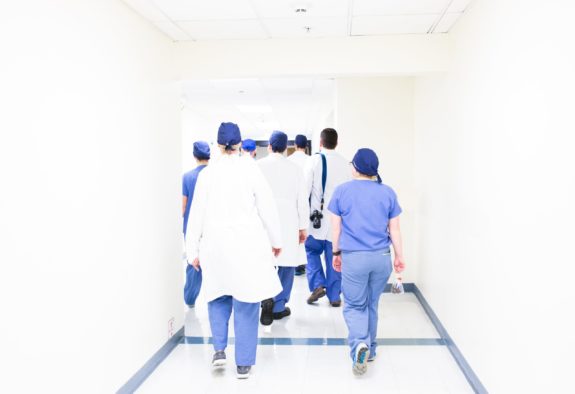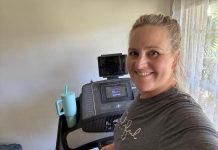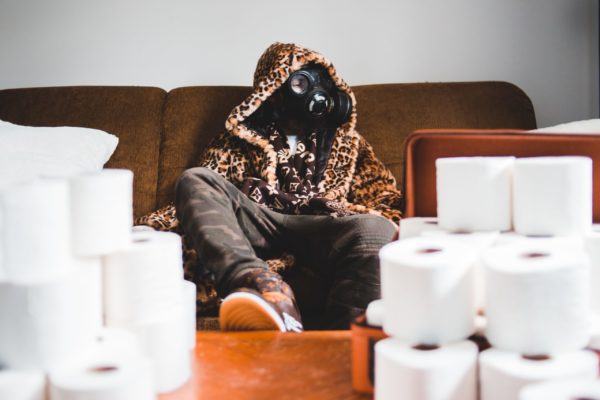
This weekend, on the cusp of Spring Break, my phone was abuzz:
“What are we thinking about Mom’s Night Out? Are you still going?”
“That pool party’s still okay since there’s only a few of us, right?”
My answer was no. Today, I was going to post this to urge you all with similar thoughts to please stay home.
Thankfully, it seems governmental restrictions are doubling down today, and my hope is you won’t need to listen to me because you will have already made up your mind.
I’m going to say it anyway: Please stay home.
Do not plan a ‘quarantine play date.’ Do not go over to your neighbor’s house for wine. Just stay home.
It’s easy to think we’re overreacting. Especially when we don’t know anyone personally who has COVID-19. Yet.
Friends, around the world, over and over, we’ve been shown that social distancing isn’t enough. It wasn’t enough in Italy; it wasn’t enough in Washington State; it won’t be enough where you are.
Yesterday morning, Oahu’s military base housing announced they are closing pools, playgrounds, and fitness centers. For many of us, this feels like such a huge inconvenience – especially since schools are all getting canceled and kids are bouncing off the walls. I get it. I do.
I’m not a doctor. And just because I’m married to a doctor of emergency medicine, it doesn’t mean I know anything about medicine (I mean, I read a lot, and I have opinions, and at times my husband jokingly calls me “Dr. Erin,” but I am not formally trained in medicine.)
You know what I do know? Emergency physicians are unflappable.
They’re cool, they’re calm under pressure. They’re the doctors most likely to jump out of airplanes or swim with sharks. Because nothing scares them. (Like when we thought a missile was headed for Hawaii and my husband had a dance party with the kids in the living room.)
I can count on one hand the number of things that I’ve seen actively cause my husband stress: medical school exams, residency intern rounds, major family conflict.
If COVID-19 is worthy of my husband’s concern, I know to take it seriously.
At first, we were among the eye-rollers: the hysteria! The hypochondria! The hoarding!
News out of Italy changed things.
You’ve heard about the shutdown, surely, but have you heard about the hospitals?
There aren’t enough beds.
There aren’t enough ventilators (and a surprising number of people need ventilators).
Physicians have to decide whom they will treat based on the likelihood of survival.
Symptomatic elderly patients and those with pre-existing conditions are left to perish because doctors are trying to save those who are younger and healthier.
Many are comparing these decisions to those made during mass casualties. Like in war. Let that sink in for a minute.

Not only this but physicians, who take the utmost care in hygiene and sanitation, are contracting the disease. The American College of Emergency Physicians reported this weekend that two ER doctors are in critical condition after contracting COVID-19. One of them, in New Jersey, is 70. The other, in Washington State, is in his 40’s.
It seems it is not just a disease of the elderly after all.
My husband, 37, is a military doctor. He must maintain certain levels of physical health to be considered fit for service. My biggest fears around his vocation have more to do with potential deployments than anything else.
Today, as I sent him off to the hospital, I couldn’t help but think I was similarly sending him into a war zone.
My husband doesn’t have a choice to stay home. He must go into the Emergency Department, day after day, and potentially expose himself to the very virus that is causing our world to shut down.
What happens when the doctors start contracting the virus and, best case scenario, have to self-quarantine for two weeks? Who takes care of the patients then? This is what happens: older doctors are called in from retirement. Medical students, who are still learning the ropes, must rise to the occasion and make life-altering calls.
Here in Hawaii, there may “only” be seven known cases, but this is how it started everywhere else. Italy went into total lockdown and it wasn’t fast enough.
Trends show that within a matter of weeks, US hospitals will be like those in Italy if we don’t take drastic measures NOW.
That means we stay home to slow the spread. We go to the grocery store once a week. We use the drive-through pharmacy for refilling prescriptions. My oldest son still has therapy appointments, but we’ll play that by ear. Other than that? We stay at home. We get fresh air by walking in our neighborhood or playing in the backyard with the kids. We stay away from the gym. We stay away from Target (the cruelest of all realities).
Slowing the spread may mean the same number of people ultimately become infected, but they will get sick over a longer period of time.
It might sound counterintuitive to want a pandemic to last a year rather than three months–don’t we just want this over with already? But slowing this down means more people have access to hospital beds and ventilators when they need them. More medical staff can take appropriate breaks to sleep and stay healthy rather than working around the clock to try and keep up with the exponential increase in patients.
Slowing the spread will allow the hospital system to have a better chance to operate as it is intended.
We want this to last a year. We want to flatten the curve. Otherwise, doctors like my husband will have to make decisions over who gets treatment.
Who will they have to turn away? Your grandmother? Your father? You?
Aside from losing my husband, I can’t imagine anything worse.
Please, I beg you: listen to the experts’ recommendations and stay home.












This. You wrote out what I couldn’t. Hugs from another military medicine spouse.
Comments are closed.